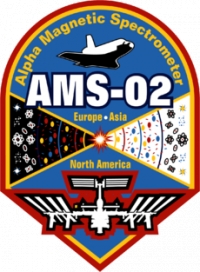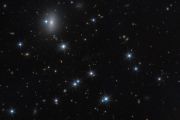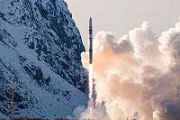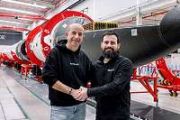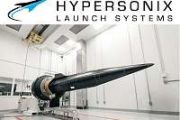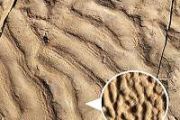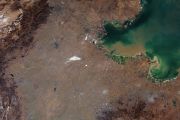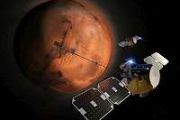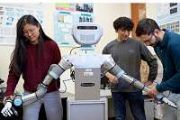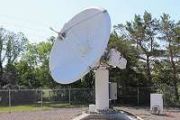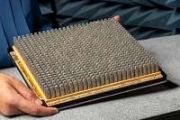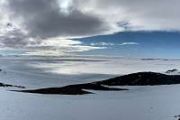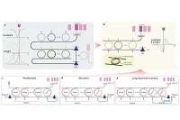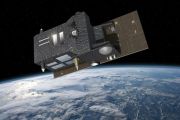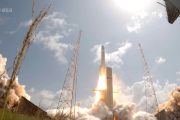The Alpha Magnetic Spectrometer, also designated AMS-02, is a particle physics experiment module that is mounted on the International Space Station.
It is designed to measure antimatter in cosmic rays and search for evidence of dark matter. This information is needed to understand the formation of the Universe. The principal investigator is Nobel laureate particle physicist Samuel Ting. The launch of Space Shuttle Endeavour flight STS-134 carrying AMS-02 took place on 16 May 2011, and the spectrometer was installed on 19 May 2011.
In July 2012, reported that AMS-02 had recorded over 18 billion cosmic ray events since its installation.
In March 2013, at a seminar at CERN, Professor Samuel Ting reported that AMS had observed over 400,000 positrons, with the positron to electron fraction increasing from 10 GeV to 250 GeV but showing a slower rate of increase at higher energies. There was "no significant variation over time, or any preferred incoming direction. These results are consistent with the positrons originating from the annihilation of dark matter particles in space, but not yet sufficiently conclusive to rule out other explanations." Additional data are still being collected.
***
An AMS prototype designated AMS-01, a simplified version of the detector, was built by the international consortium and flown into space aboard the Space Shuttle Discovery on STS-91 in June 1998. By not detecting any antihelium the AMS-01 established an upper limit of 1.1×10−6 for the antihelium to helium flux ratio and proved that the detector concept worked in space.

